The Week in Review 8-14 June
A summary of the main developments in Romania this past week
Warning: Trying to access array offset on null in /home/web/rri.ro/public/wp-content/themes/rri/template-parts/content.php on line 53

Warning: Trying to access array offset on null in /home/web/rri.ro/public/wp-content/themes/rri/template-parts/content.php on line 98
Roxana Vasile,
13.06.2015, 12:15
Prime Minister Victor Ponta retains parliamentary imunity
Although accused of conflict of interests while in office, the Social Democrat Prime Minister Victor Ponta has managed to retain his parliamentary immunity. His colleagues in the Chamber of Deputies on Tuesday rejected the request of the National Anticorruption Directorate for his prosecution, just like the judicial committee of the same chamber had done a day before. However, the National Anticorruption Directorate is already prosecuting the PM for another three crimes he allegedly committed as a lawyer. The PM is accused of forgery, accessory to recurrent tax evasion and money laundering, in a case also involving the former minister of transport, the Social Democrat senator Dan Sova. Therefore, Victor Ponta is the first prime minister of post-communist Romania under criminal investigation while still in office. Against this background, Romanias president Klaus Iohannis called for the PMs resignation. Victor Ponta replied on Facebook, saying he would not resign, because it was the Romanian Parliament that appointed him, so it is only Parliament that may dismiss him. Moreover, in a letter he has sent to foreign partners and media, the prime minister says the case built around him is a political one and aimed at bringing down the Government.
The Ponta Government and the censure motion
If the head of government does not resign, introducing a censure motion to dismiss the government can be the solution for Romania to get out of the current difficult situation, the co-president of the National Liberal Party, Alina Gorghiu has said. Consequently, the main opposition party has introduced a censure motion in Parliament. Quite predicibly, the motion did not pass. The themes of the motion were the organizational disaster at polls abroad, at the presidential election last November, which disallowed thousands to vote, as well as the failure to pass the law on postal voting, which could have prevented the said situations. The Ponta Government is still in power, but one of its ministers, Ioan Rus, has resigned following his offensive statements, in a TV interview, regarding the Romanians working abroad. The issue of high-level resignations has also been debated at the end of this week in Chisinau, when the Moldovan Prime Minister, Chiril Gaburici, suspected of having forged his school records, resigned.
Romanias Defense Strategy
“A strong Romania in Europe and the world is the subtitle of Romanias national defence strategy, which the countrys Supreme Defence Council will send to Parliament for approval. At the end of the councils meeting on Tuesday, president Klaus Iohannis said that the strategy entailed a new concept, that of ‘extended security. National security is not only about defence; it also has to do with public order, the economy, infrastructure, education, healthcare, the environment and culture, all of which have an impact on national security, the president said. The new strategy reaffirms the importance of Romanias strategic partnership with the US and its NATO and European Union membership as pillars of the countrys foreign and security policy. As proof of its involvement in the European project, Bucharest will propose, at the upcoming meeting of the European Council this month, the creation of a new common security strategy. On a domestic level, the strategy provides for the continuation, in 2015, of the armys restructuring and modernisation process and its provision with new equipment by 2027.
Support for Romanian Physicians
This week, the Romanian Senate has endorsed the draft law allowing medical staff in hospitals to increase their incomes by providing paid health-care services in the hospitals in which they work. The document is to be discussed by the Health Committee of the Chamber of Deputies and then voted upon in plenary session. The Health Ministry thus hopes to stop the Romanian physicians exodus abroad and to improve the quality of medical services provided in hospitals. In the past years, over 20 thousand physicians have left the country because of the small salaries they got in Romania.
Positive Economic Forecasts for Romania
The World Bank has revised upwards to 3% its economic growth forecast for Romania this year, as compared to the 2.8% world average. Moreover, Romania is likely to register a 3.2% growth rate in 2016, and 3.5% in 2017, which would be lower by 0.4%, though, than what the international financial institution had forecast in winter. Romanias economic performance, alongside that of the Czech Republic, has also been confirmed by the Statistical Office of the European Union – Eurostat- according to which in the first quarter of this year the two countries had the highest economic growth in the EU: 4.2%.
Drought in Romania
Agriculture, which is one of Romanian economys main driving engines, could be faced with severe drought this year. Since the contribution of the sector accounts for 5 to 7% of the GDP, this situation might hamper the economic growth forecast by specialists. Summer has not settled in yet, but the land has already cracked over extended areas, and many crops have dried. Water levels have also dropped significantly in many rivers and people are afraid that soon they will not have water for their animals. Currently, the most affected regions are in the north-east, east and south, where water in the soil has already reached alarmingly low levels. The irrigations system, built before 1989 can only cover 10% of Romanias arable land.



























